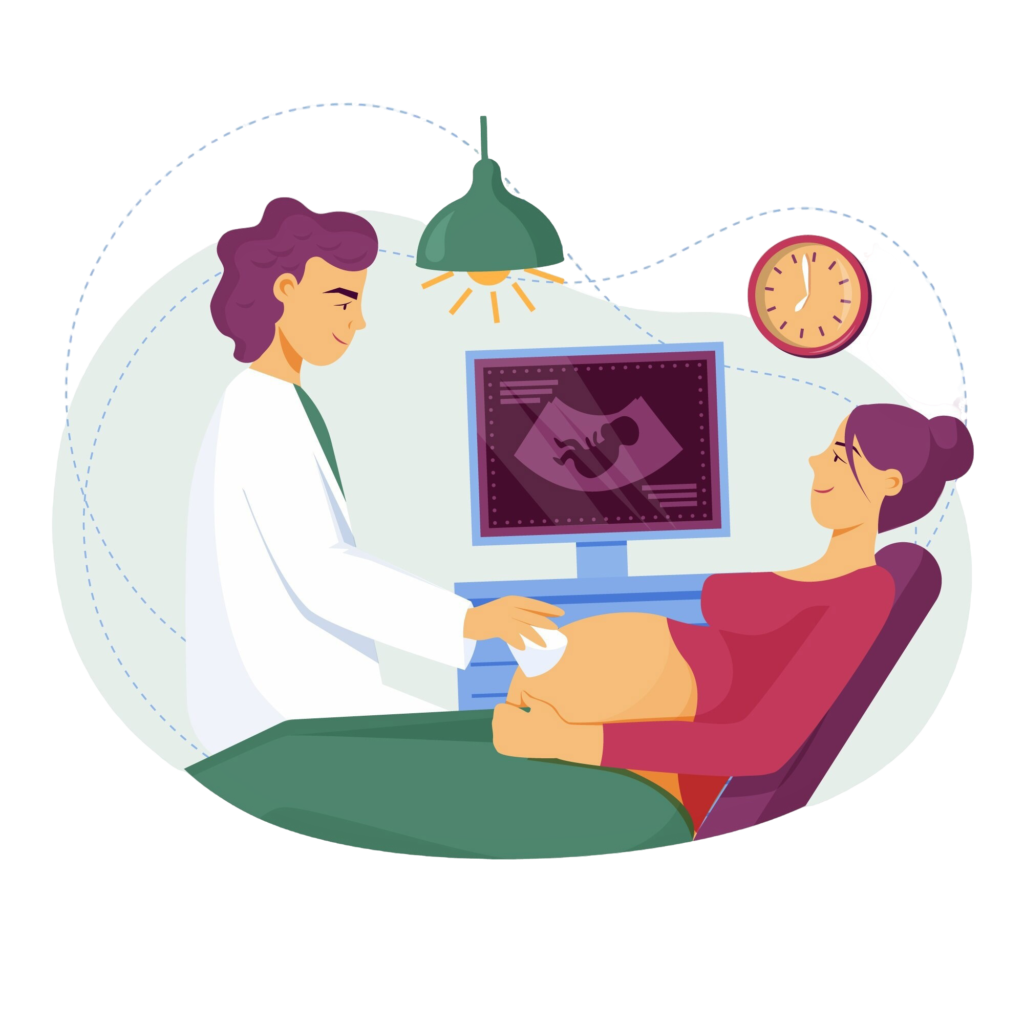Irregular periods are a cause of concern for many women. It can affect fertility and pregnancy. This article will help you understand Does Irregular Periods Affect Pregnancy, What are its causes, Chances of getting pregnant and What steps you can take.
What Are Irregular Periods?
Irregular menstrual cycles are defined as menstrual cycles that vary widely in length from 21 to 35 days outside the normal range and may also occur as Irregular periods.
For example some women may have a 28-day menstrual cycle one month and then experience a 40-day menstrual cycle the next month, or some women may stop having menstrual cycles completely (this is called amenorrhea).
The Main symptoms of irregular periods include:
- A menstrual cycle shorter than 21 days or longer than 35 days.
- Excessive bleeding or spotting between periods.
- Menstrual periods that are unpredictable or uneven.
Although irregular menstrual periods have become common these days at certain stages such as after Childbirth, Puberty or Menopause, menstrual irregularities could also indicate an underlying Health cause that may be affecting fertility.

How Do Irregular Periods Affect Ovulation?
Ovulation is the release of a Mature egg from the ovary, which is necessary for pregnancy. Women with regular cycles will always ovulate at the same time each month,
Which helps predict their fertile period. But women with Irregular periods will often have ovulation or anovulation that doesn’t happen at the same time each month.
Challenges with Irregular Ovulation
- It is difficult to pinpoint the Fertile period, which occurs in the days Before and after ovulation.
- Only minimal changes occur other than leaving a Viable egg for fertilization.
- Hormonal imbalances affect Egg quality and the Condition of the uterus.
Despite all these challenges, women successfully conceive and may require further medical treatment and treatment.
Common Causes of Irregular Periods
To put an end to fertility concerns, it is important to understand the causes of irregular menstruation. Common causes are:
-
Polycystic Ovary Syndrome (PCOS):
- Hormonal disorders arise due to which there is more Androgen production in the ovaries. (this is male hormones)
- Symptoms: Irregular periods, Acne, Having too much Hair and Weight gain.
- Effect on fertility: Ovulation is obstructed and irregular cycles occur.
-
Thyroid Disorders:
- Both hyperthyroidism (overactive thyroid) and hypothyroidism (underactive thyroid) cause suppression of Reproductive hormones.
- Symptoms: Irregular menstrual cycles, Fatigue and Weight changes.
-
Stress:
- Excessive chronic stress can cause damage to the Hypothalamus, a part of the brain that Controls your menstrual cycle.
- This can cause menstruation To be Late or Even stopped.
Must Read This Helpful – How to avoid and improve mental health.
-
Too much Weight change:
- Being Overweight, Underweight, or Rapid weight gain or loss can stop ovulation.
- Fat in the body plays an important role in Maintaining hormonal balance.
-
Medical Conditions:
- Conditions like Diabetes or Autoimmune diseases also affect the menstrual cycle.

Can You Get Does Irregular Periods affect Pregnancy
Why not, yes it is possible to get pregnant even with irregular periods but it May take more time and Requires a lot of effort. Irregular cycles make it difficult to guess ovulation but it does not mean that you are Suffering from Infertility.
Tracking Ovulation:
- Using an ovulation predictor kit (OPK) you can track the ups and downs of your Hormone surges.
- Check your basal body temperature (BBT), Which rises slightly after ovulation.
- Notice for changes in cervical mucus; Fertile mucus is clear and stretchy.
Adopt a Healthy Lifestyle:
- Have a more balanced Intake of Nutrients that promote reproductive health.
- Exercise regularly, but do not overdo it as it can cause Hormonal imbalance.
- Do exercises like Yoga, Meditation or Therapy daily which will reduce stress.
Seek Medical Advice:
- A health care contributor can help diagnose the underlying cause of Irregular menstrual periods.
- Ultrasound, Blood tests, or Hormonal evaluation may be done.
Consider Fertility Treatments:
- Ovulation-inducing medications (e.g., Clomid, Letrozole) may help.
- For more difficult cases, advanced reproductive technologies (ART) such as intrauterine insemination (IUI) or in vitro fertilization (IVF) may be performed.

When to See a Doctor
Consult a healthcare provider if:
- Your periods have been affected and Irregular for six months or more.
- If you are under 35 years of age and have been trying to get pregnant for more than a year (or more than six months if you are over 35).
You experience other symptoms such as:
- Exorbitant hair growth.
- Severe acne.
- Suddenly weight gain or loss.
Diagnostic Tools:
- Ultrasounds to check ovarian and uterine health.
- Blood tests to evaluate hormone levels.
- Additional testing for conditions like PCOS or thyroid disorders.

Treatment Options for Does Irregular Periods affect Pregnancy
The right treatment depends on the cause of irregular periods. Common options include:
-
Lifestyle Changes
Can be managed naturally with a Balanced diet, Regular exercise, and Stress management.
-
Medications
- Hormonal fixes for cycle regulation (if not trying to become pregnant).
- Ovulation-inducing medications to help with conception.
-
Surgical Interventions
Helpful for severe cases of PCOS or structural causes like Uterine Fibroids.
-
Alternative Therapies
Acupuncture or herbal remedies may be helpful but should be used under medical supervision and with the Advice of a doctor.
Conclusion
Irregular menstruation makes pregnancy very difficult but it Does not make it impossible. With proper monitoring, Lifestyle changes, and Medical help, many women with irregular menstrual cycles are able to conceive successfully. Knowing the root cause and Seeking timely medical advice can make a huge difference. If you are struggling with irregular menstrual periods, do not hesitate to Consult a healthcare provider to upgrade to a private plan. With the right help, your chances of having a Healthy Pregnancy can be much better.


